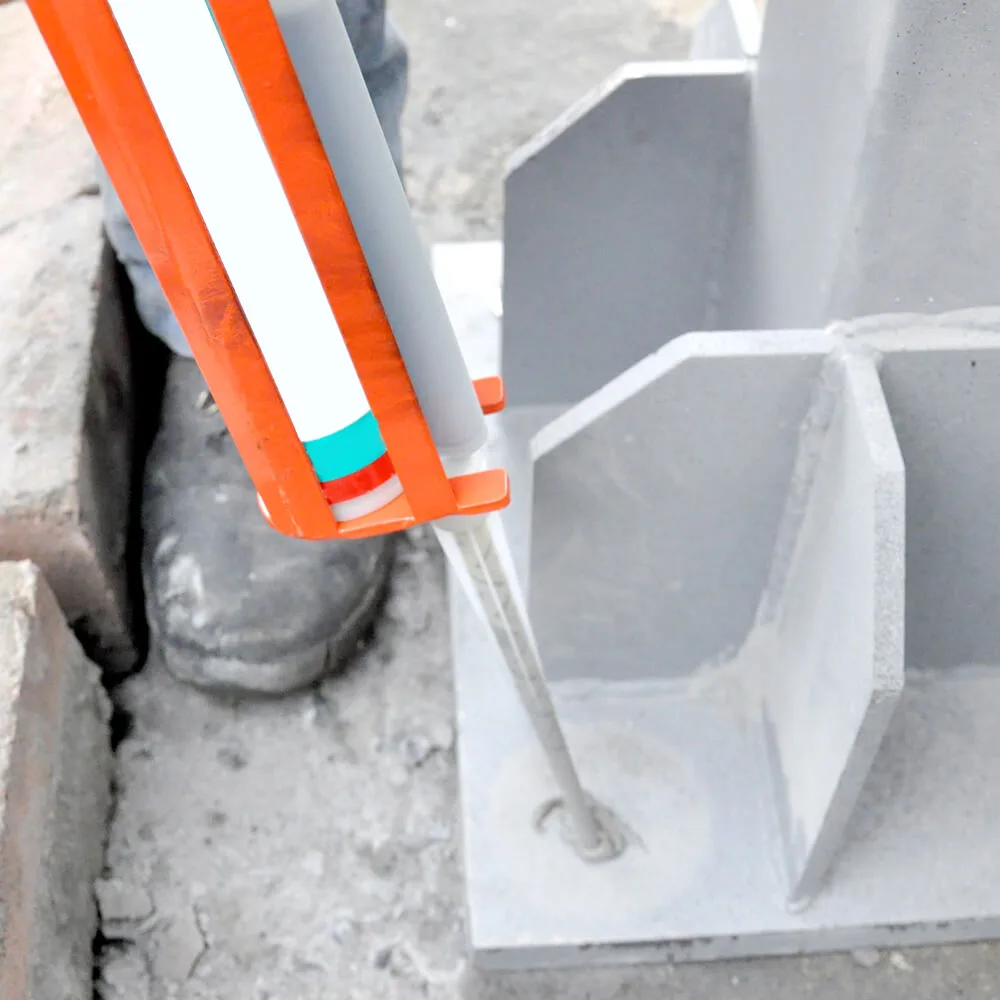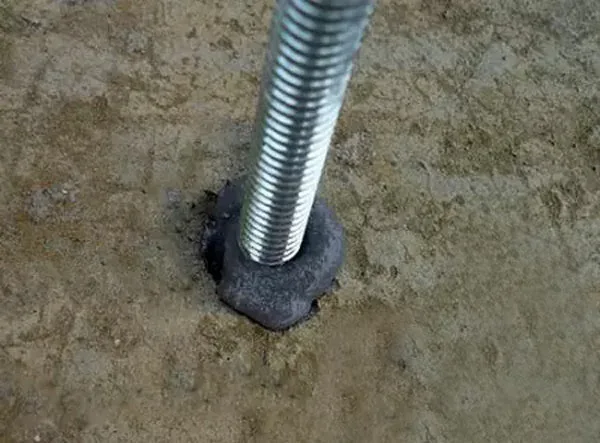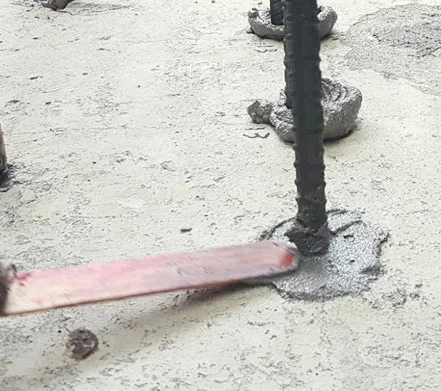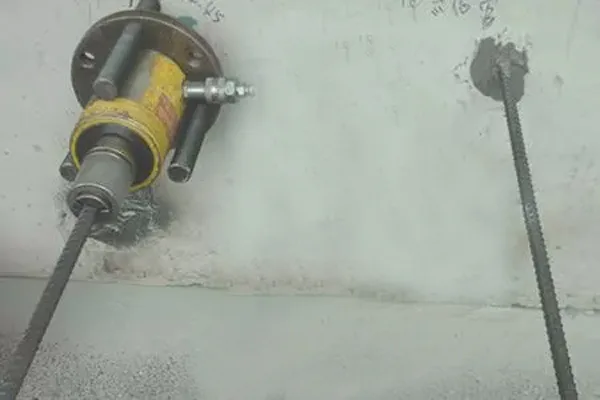Polyester chemical anchors are specialised construction fasteners used to secure connection between threaded rods or bolts and concrete or masonry surfaces. They typically consist of a two-part polyester resin system, where a base resin and hardener are mixed to form a strong adhesive. This resin is contained within a capsule or cartridge, which is placed in a pre-drilled hole along with the threaded rod or bolt. As the resin cures, it bonds with the surrounding material, ensuring a robust and load-bearing connection.
Advantages of polyester chemical anchors
- Provides durable bond between fixtures and substrates
- Excellent load-bearing capabilities,
- Relatively easy to mix and apply for on-site construction work.
- Cures quickly, allowing for efficient construction and repairs
- Distributes stress more evenly, reducing the risk of concrete spalling or cracking.
- Can be used with various anchor rods and studs, providing flexibility in design.
- Resistant to corrosion and oxidation making them ideal for outdoor and marine environments.
- High-temperature resistance.
- Excellent chemical resistance against acids and solvents.
- Can be used with hollow sockets to create a removable fixing point.

Types of resin polyester chemical anchors
1. Injectable Polyester Chemical Anchors: Injectable polyester chemical anchors are the most commonly used type in construction and engineering. They consist of a two-component system, with a polyester resin and hardening agent that are mixed and injected into drilled holes. These anchors are used for securing steel rods, anchor bolts, and threaded rods in concrete and masonry substrates.
2. Styrene-Free Polyester Chemical Anchors: Styrene-free polyester anchors are specifically designed for use in environments where emissions of styrene, a potentially harmful chemical, are a concern. These anchors offer the same performance as standard polyester anchors but without the styrene content, making them suitable for enclosed or poorly ventilated spaces while maintaining their general versatility.
3. Pure Epoxy Polyester Hybrid Chemical Anchors: Pure epoxy polyester hybrid anchors combine the qualities of both polyester and epoxy resins, providing improved chemical resistance and adhesion properties. These anchors are ideal for use in environments where exposure to aggressive chemicals is a concern. They offer enhanced durability and are commonly employed in projects involving aggressive chemicals or corrosive atmospheres.
4. High-Performance Polyester Chemical Anchors: High-performance polyester anchors are engineered for critical applications where exceptionally high loads and long-term durability are required. These anchors are often used in seismic retrofitting, bridge construction, and other projects with demanding structural requirements. They offer superior load-bearing capabilities and reliability.
5. Mesh Sleeve Polyester Anchors: Mesh sleeve polyester anchors are designed for use in hollow or brittle materials like brick or hollow concrete blocks. These anchors consist of a polyester mesh sleeve filled with resin and hardener, providing structural support and enhanced adhesion in such materials.
6. Underwater Polyester Chemical Anchors: Underwater polyester anchors are formulated to cure and bond effectively in underwater or damp conditions, making them suitable for marine applications and submerged anchoring. These anchors are crucial in situations where conventional anchors may not provide reliable adhesion in underwater environments.
7. Cartridge Dispensed Polyester Anchors: Cartridge-dispensed polyester anchors come in cartridges that can be loaded into a dispensing gun for controlled and precise application. This design is especially valuable in construction projects where accuracy is critical, as it allows for controlled and mess-free installation of anchors.

How to select the right polyester chemical anchors?
When choosing the appropriate polyester chemical anchor type, it’s essential to consider project-specific requirements, including load capacity, environmental conditions, and the characteristics of the base material. This careful selection ensures the safety and stability of the construction or anchoring application, meeting the project’s long-term objectives. Below is an overview of how to select the right resin chemical anchors.
– Assess Project Requirements:
– Determine the type of base material (concrete, masonry, etc.).
– Identify the specific load-bearing needs of your application.
– Consider Environmental Conditions:
– Account for factors like chemical exposure, moisture, and temperature.
– Evaluate Load Capacity:
– Determine the required load-bearing capacity of the anchors.
– Check Ventilation and Space:
– Consider workspace and ventilation conditions.
– Review Ease of Installation:
– Evaluate the ease of installation for efficiency.
– Assess Adjustability Needs:
– Determine if you need the ability to make precise adjustments.
– Consider Budget Constraints:
– Balance your choice with your project’s budget.
– Seek Expert Advice:
– Consult structural engineers, contractors, or anchor manufacturers for guidance.
– Verify Building Code Compliance:
– Ensure your chosen anchor type complies with local building codes.
By systematically assessing these factors and considering the specific needs of your project, you can make an informed decision when selecting the most appropriate polyester anchor type to ensure the safety, stability, and success of your construction or anchoring application.

Method application for polyester chemical anchors
Installing a polyester chemical anchor involves several steps. Here’s a step-by-step guide:
1. Gather Your Materials:
– Polyester chemical anchor cartridge and nozzle.
– Drill and appropriate drill bit for the anchor size.
– Wire brush and blower to clean the hole.
– A hammer or setting tool.
– The anchor bolt or threaded rod.
2. Safety Precautions:
– Wear appropriate safety gear, including safety glasses, gloves, and a dust mask.
– Work in a well-ventilated area.
3. Drilling the Hole:
– Use the drill and the correct-sized bit to create a hole in the base material. The depth and diameter of the hole should match the specifications for your anchor.
4. Cleaning the Hole:
– Use a wire brush and a blower to remove dust, debris, and loose material from the hole.
5. Inserting the Anchor:
– Attach the nozzle to the polyester anchor cartridge.
– Place the anchor bolt or threaded rod into the hole, leaving the desired amount exposed for your application.
6. Injecting the Resin:
– Insert the nozzle into the hole, making sure it reaches the bottom.
– Squeeze the trigger on the cartridge, dispensing the polyester resin into the hole. Fill it completely.
7. Setting the Anchor:
– While the resin is still wet, insert the anchor bolt or threaded rod into the hole, twisting it slightly to evenly distribute the resin.
8. Curing Time:
– Allow the resin to cure as per the manufacturer’s instructions. This usually takes several hours to achieve full strength.
9. Removing Excess Resin:
– Once the resin has cured, remove any excess resin that may have squeezed out from the hole.
10. Finishing:
– Allow the anchor to cure fully, following the manufacturer’s recommended curing time.
Always refer to the specific instructions provided by the manufacturer of the polyester chemical anchor, as there may be variations in the installation process depending on the product.

Applications of resin chemical anchors
- Building Construction: Used to secure structural elements like steel rods, anchor bolts, and threaded rods in concrete and masonry substrates, providing stability and strength.
- Infrastructure Projects: Essential in bridges, highways, tunnels, and dams to anchor critical structural elements for durability and safety.
- Styrene-Free Applications: Suitable for enclosed or indoor construction projects to maintain good air quality.
- Chemical Processing Plants: Pure epoxy polyester hybrid anchors resist exposure to aggressive chemicals and corrosive atmospheres in industrial facilities.
- Heavy Machinery Installation: Threaded rod anchors secure heavy machinery and equipment, providing a secure and adjustable connection for precise adjustments.
- Marine and Underwater Structures: Polyester anchors are vital for marine and underwater applications, ensuring reliable adhesion in submerged conditions.
- Industrial Facilities: Used in various industrial settings, including manufacturing plants, power generation facilities, and oil and gas refineries.
- Residential Construction: Used in residential construction to secure fixtures, structural elements, and wall attachments.
Conclusion
Polyester Chemical Anchors are versatile and reliable fastening solutions widely employed in construction and engineering projects. Their effectiveness lies in their ability to provide secure, long-lasting connections in a variety of substrates, enhancing structural stability and load-bearing capacity. The versatility of polyester chemical anchors, combined with their ease of installation and resistance to environmental factors, makes them a valuable asset in the construction industry. Whether used in concrete, masonry, or other materials, these anchors offer a dependable and cost-effective means of ensuring structural integrity and safety in a wide range of applications.

